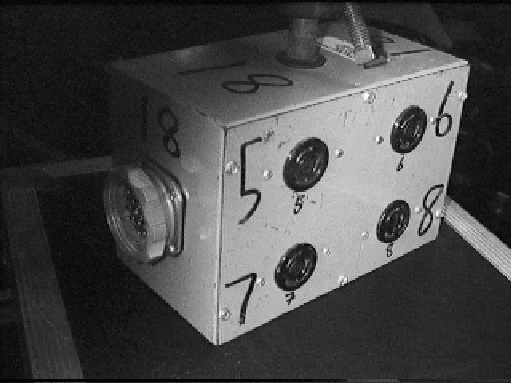
|

|
WPI Technical Theatre Handbook: Cables and Connectors | 
|
|
|
Next: Lighting Boards Up: Lighting Previous: Dimmer History Contents Index
|
|||
 |
An important consideration when wiring lighting equipment is cable dressing. Neat and orderly wiring is very important because it makes finding problems easier, and makes the overall setup much safer. Large coils of live cables should be avoided, especially around metal objects, as this creates an inductor and electromagnet. If a big enough coil is made, it is possible to cause dimmer damage, and cause problems with other equipment in the vicinity of the coil.
Next: Lighting Boards Up: Lighting Previous: Dimmer History Contents Index Steve Richardson 2000-07-06
Use of information in this document implies understanding and agreement with the copyright and terms of use. Specifically, no warranty is expressed or implied regarding the accuracy of the information contained within. YOU USE THIS INFORMATION AT YOUR OWN RISK. All trademarks are property of their respective owners. You must obtain permission from the author before using the contents of The Handbook for anything other than private use.
- Contents
- Introduction
- Costumes
- The Set
- Rigging
- Lighting
- Audio
- Power
- Special Effects
- Acknowledgements
- References
- List of Figures
- Index
- About this document ...